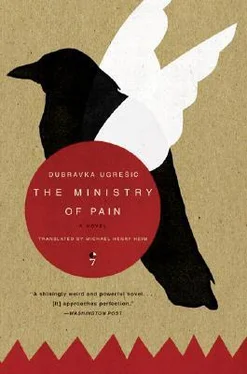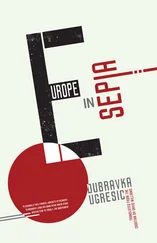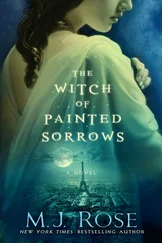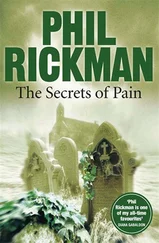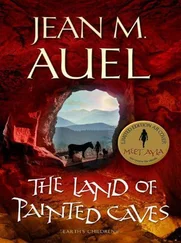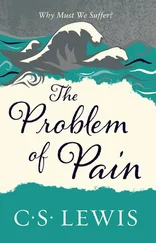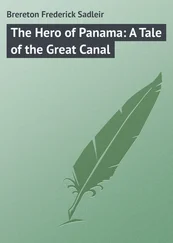I did not see how we could come to grips with our past if we did not first make our peace with it. So as our common ground I chose something we all felt close to — the homely terrain of the day-to-day life we had shared in Yugoslavia.
Gradually our red-white-and-blue-striped bag filled up. There was a little of everything: the now dead world of Yugoslav primary and secondary schools, the idols of Yugoslav pop culture, all manner of Yugogoods — food, drink, apparel, and the like — and Yugodesign, ideological slogans, celebrities, athletes, events, Yugoslav socialist myths and legends, television series, comic strips, newspapers, films…
Boban had unearthed a cache of Yugoslav films on video, so we had lots to watch. They proved a most viable testimony to the existence of a Yugoslav life. Reading that life from our posthumous perspective, we discovered detail after detail that presaged the future, prognostications that came true.
I soon set aside the worries that had beset me: our “archeology” our “spiritualism,” the reanimation of our “better past” made us so close that we found it harder and harder to disband. So we adopted another habit from the past: after class we would adjourn to a café and jabber on, dispersing only to run for the last tram, bus, or train. To an outsider we must have looked like a tribe uttering the magic words that call forth its gods; we must have seemed in a trance. Well, we were in a way.
The student I had the hardest time getting a handle on was Igor. His memory amazed me: he would have the most vivid “recollection” of things he couldn’t possible have experienced.
“You weren’t even born then!”
“But I’ve got Yugogenes, Comrade, and they remember.”
He got a kick out of pronouncing the ostensibly nonsensical nonce word, Yugogenes, in the Dutch way, substituting harsh, guttural h ’s for the g ’s. We laughed. My students clearly liked the idea that our past was remembered not so much by us as by phantom “Yuhohenes” for which we bore no responsibility.
I frequently bumped into one or another of them in town. We were as happy to see each other as if we hadn’t met for ages. We would cover each other with sweet verbal saliva and pat each other on the back, then retire to a café for an endless kopje koffie and aural fondling.
The student I most often ran across in my peregrinations was Igor. Suddenly the tall frame, the backpack, the inevitable earphones draped around the neck would pop out of nowhere.
“What brings you here?” I would ask.
“And you?” he would counter.
“What do you propose?”
“How ’bout a lope?”
That was how they spoke. It was their slang. For them a “lope” was a “walk,” from the Dutch lopen . He might also have suggested a “wandel,” from the Dutch wandelen (“go for a walk”). They’d also say things like “Let’s go for a kopje koffie .” Selim’s Dutch-Bosnian combinations were hysterical.
Even though my students made it clear that they enjoyed our common project, I could never quite rid myself of the minefield image. One day when Igor and I were wandering through the streets, I tried to bring him out on the subject.
“Tell me, Igor, how do you feel about the class?”
“You know what Tito said to his future wife the first time they met?”
“No, tell me.”
Hear my thoughts, O Jovanka.
Your hands are less guilty than mine.
My forehead burns tonight.
My eyelids quiver.
I’ll dream a beauteous dream tonight:
Thy beauty shall me unto death deliver!
Thus did a line from a Croatian poetess and a stanza from a Croatian poet merge in Igor’s imagination.
“Is nothing sacred?” I said, laughing.
Instead of answering, he asked, “Tell me, Comrade, have you noticed that angels never laugh?”
“I can’t say I’ve given it much thought.”
“You’ve never looked an angel in the eyes?”
“No, I don’t think so…. Not that I remember…”
“Well, then, we have an urgent call to make.”
We spent the rest of the afternoon in the Rijksmuseum looking at angel faces of the old masters.
“See? I was right,” he said. “Angels don’t smile, do they?”
“Like hangmen.”
We both burst out laughing, though it wasn’t at all funny. The laughter was a way of dealing with an invisible angst.
Convalescents, I suddenly thought — people recovering from an illness or a trauma of some kind, an accident, a flood, a shipwreck — they don’t laugh, either. We were convalescents. I didn’t say anything, though.
Surrounded bythe indifferent walls of our imaginary laboratory, we breathed life into a life that no longer was. We took turns massaging the heart and giving artificial respiration. Clumsy and amateurish as we were, we eventually succeeded in bringing back the beat of that bygone era.
Most of them returned to their childhoods: it was the safest, least threatening territory. Whether the details were their own or what they had gathered from their parents or whether they had made them up, as Igor often did, was not important. Every detail contained its morsel of truth.
As for the whole, it was untranslatable: we were speaking an extinct language comprehensible only to ourselves. How could we have explained them to anyone, those words, concepts, and images and — what was more to the point — the feelings the words, concepts, and images called forth in us? It was alchemy: I had assured them there would be gold at the end of the line, knowing full well that a detail which shone brilliantly one moment could fade and vanish the next. As could the heart we had jointly resuscitated.
At times I wondered whether what I was doing wasn’t diametrically opposed to what I thought I was doing. After all, the stigma the ideologues of the successor states had placed on memories of the collective past had backfired: it had made that collective past more attractive. Perhaps by stimulating memories of the past I would destroy its halo. Or perhaps my attempt to reconstruct the past would end in no more than a pale imitation, thus exposing the poverty of the “baggage” we deemed so powerful. Yet whenever I turned over these and related issues in my mind, the pleasure we derived from our memory game would push them aside, as I had pushed aside a discovery that hit me like a ton of bricks one day, namely, that I had forgotten a lot more than they had and was therefore not the best qualified memory tutor. But it was too late: I had set the gears in motion and could no longer stop them.
NEVENA: THE FIRST OF EVERY MONTH
My papa worked in a factory; my mama was a housewife. Our most important family holiday was “first of the month.” Papa would bring home his pay in the “pay pocket” (that’s what it was called) and present it to Mama. Mama took care of the money: such and such an amount for gas, such and such for electricity, such and such for rent, and such and such to pay off the things we had bought on credit. Then we would dress up, as if going out for dinner, and go out shopping.
Papa used the Turkish word for shopping— bakaluk —Mama the Croatianized German fasung . Mama led the fasung expedition, because only she knew what we needed (how much sugar, how much flour, how much oil, how much salt, how much coffee, and how much macaroni and noodles to last till the first of the following month), and we all pranced along behind her. Mama always bought unroasted coffee, which we then roasted ourselves in a cylindrical tin pot with little doors and a handle on one side. We’d pour the gray beans in through the doors, shut the doors, and put the pot on the gas burner. Then we’d rotate the handle and the pot would rotate and the coffee would rotate in the pot ever so slowly and roast on the fire. The whole apartment would smell of freshly roasted coffee. How I loved that smell. We needed a lot of coffee, because neighbors came to see Mama and drink coffee every day. We didn’t buy many other things. Mama made jam and preserves, she pickled cucumbers, she turned red peppers into paprika and ajvar —that kind of thing. She was also good at making liqueur out of cherries, nuts, and chocolate, so we didn’t buy that either. We kept everything in the pantry. Mama would paste labels on the jars with the name of the produce and the date. The most exciting time for us kids was dessert. Mama would buy a few boxes of biscuits and “cooking chocolate” (that’s what it was called), because that was the cheapest kind. There was a kind of biscuit in the shape of a slipper with strips of chocolate on top and a kind called “housewife biscuits,” which were the best for dipping in milk. And Mama always bought each of us a round, crisp chocolate wafer called a napolitanka . Us kids always thought “store bought” tasted much better than “homemade.”
Читать дальше
